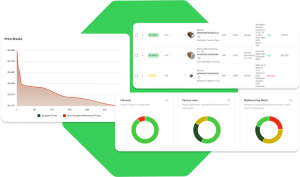Google Gets Psychic with Instant Search Results. Screw the “Enter” Button.
![]() Google has launched Google Instant today, using predictive type technology to deliver faster search results for queries. It cuts down 2-5 seconds per search, showing results in real time, without having to hit the “enter” button. Turns out, the rumors around Google’s latest Doodles are true.
Google has launched Google Instant today, using predictive type technology to deliver faster search results for queries. It cuts down 2-5 seconds per search, showing results in real time, without having to hit the “enter” button. Turns out, the rumors around Google’s latest Doodles are true.
During the press event today, Marrissa Mayer, Vice President, Search Products & User Experience, said that this is not a “search as you type” solution, “but search before you type.” Google Instant knows what you’re most likely looking for, and displays results as you type your query.
Google has always prided itself in returning speedy results to searchers, displaying the nanoseconds it took to conjur page upon page of results. There were two factors Google wanted to cut down on, though: typing and thinking time of its users. To work around this, Google Instant determines what you’re typing, and shows results directly below.
I’ve been playing with it for a few minutes now. There are a few keyboard shortcuts you’ll want to know in order to use the new tool to its fullest potential, but these are primarily your QWERTY keyboard and the tab button. Otherwise, Google Instant is quite intuitive and speedy, indeed.
That being said, there’s still a bit of a learning curve on the tool. For many users, it will take some getting used to, as with any other changes Google makes. I’m sure some users won’t like the dynamic search page at all. But Google is really reaching for a consumer-driven product here, meaning mainstream appeal is very important.
Consumer appeal? Google wants it.
![]() During the press event, Google took the time to review some updates rolled out this year, starting with its Superbowl ad in January. It was the first television commercial for Google, setting the stage for the company’s new formula for building brand loyalty.
During the press event, Google took the time to review some updates rolled out this year, starting with its Superbowl ad in January. It was the first television commercial for Google, setting the stage for the company’s new formula for building brand loyalty.
Other updates included a plethora of interface and algorithm improvements, based on research built around existing navigational behavior and other types of feedback. The major points here were Google Caffeine, Real-time search page, Spelling Corrections (auto-predict), Google Square (Q&A), and Stars (personalized bookmarks for logged-in users).
The common denominator here is user feedback. Google is building up a highly personalized search and services portfolio, appealing to individual users, not just a “type” of user. Steve Rubel has already commented that this will make current SEO practices irrelevant, given that each user will now see a different Google experience.
“Instant” marketing changes, in real-time
This is an important point to consider, though I don’t fully agree. But it’s also reflective of marketing and advertising changes that have been developing for the extent of real-time’s influence on search. Overall, brands are needing to find ways to market to individual consumers, which is good in many ways. The guesswork is being removed from advertising methods, shortening the delivery route to consumer populations. How this affects Google as an advertising company remains to be seen, but it strengthens Google’s position greatly, as it positions itself to be the database with consumer information, as well as the best method of accessing those consumers.
Looking at some of Google’s mobile initiatives, however, and it’s clear that Google Voice will also be a major point of development moving forward. Google Voice Action has already debuted as a way to become more interactive with your smart phone, increasing productivity by introducing a new way to communicate through technology. This week at IFA, Google is demonstrating voice translations as another speech-driven project.
As Google looks to streamline search time, provide more relevant information so that the “work” part of searching can be eliminated (making it more usable for mainstream consumers), finding ways to remove typing time all together will be something speech-recognition could provide. I think the combination of Google’s many products and points of access will come together best with mobile devices, for search queries and the resolution of Google’s core competencies. In the meantime, I’m actually quite happy to see Google Instant, as I spend a great deal of time puttering around on Google.
Google’s dedication to speed brings up a topic we heard often at VMworld last week, as virtualization becomes an integral part of addressing consumer demand. Here’s a clip where David Flynn of Fusion IO suggested that “the power of speed needs evolving storage.”
A message from John Furrier, co-founder of SiliconANGLE:
Your vote of support is important to us and it helps us keep the content FREE.
One click below supports our mission to provide free, deep, and relevant content.
Join our community on YouTube
Join the community that includes more than 15,000 #CubeAlumni experts, including Amazon.com CEO Andy Jassy, Dell Technologies founder and CEO Michael Dell, Intel CEO Pat Gelsinger, and many more luminaries and experts.
THANK YOU









